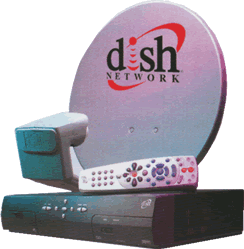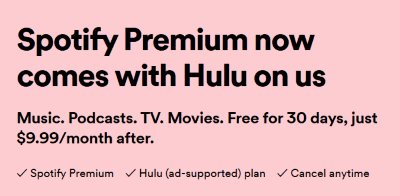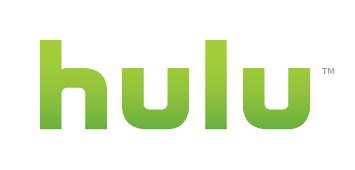 More than 2.5 million HBO and Cinemax customers are blacked out after AT&T cut off its biggest satellite rival Dish Networks and streaming provider Sling TV in a dispute the Department of Justice claims confirms its concerns that AT&T’s merger with Time Warner (Entertainment) would be bad for consumers.
More than 2.5 million HBO and Cinemax customers are blacked out after AT&T cut off its biggest satellite rival Dish Networks and streaming provider Sling TV in a dispute the Department of Justice claims confirms its concerns that AT&T’s merger with Time Warner (Entertainment) would be bad for consumers.
It is the first time HBO has faced a contract renewal blackout on any platform in its 46-year history. But some groups feel it was predictable, considering AT&T owns DirecTV, Dish’s biggest rival. AT&T acquired HBO’s parent company, Time Warner (Entertainment) in 2018, changing its name to WarnerMedia. Last summer, Judge Richard J. Leon, senior district judge on the U.S. District Court for the District of Columbia gave AT&T approval of that $85 billion merger deal with no conditions, scoffing at Department of Justice claims that the merger would give AT&T undue market power that could be used to threaten competitors by depriving them access to popular cable networks and content or use of those networks in marketing materials to attract new subscribers.
As the DoJ pursues an appeal of Judge Leon’s decision, this week’s blackout seems to add ammunition to the government’s case against the merger.
“This behavior, unfortunately, is consistent with what the Department of Justice predicted would result from the merger,” a DoJ representative told Reuters. “We are hopeful the Court of Appeals will correct the errors of the District Court.”
A statement from Dish Networks harmoniously echoed the government’s position.
“Plain and simple, the merger created for AT&T immense power over consumers,” said Andy LeCuyer, senior vice president of programming at Dish, in a statement. “It seems AT&T is implementing a new strategy to shut off its recently acquired content from other distributors.”
 Consumer groups like Public Knowledge also agree.
Consumer groups like Public Knowledge also agree.
“In opposing the AT&T/Time Warner deal, opponents — including the Department of Justice — predicted that the newly combined company would have the incentive to withhold content, and would gain stronger leverage in negotiations like this one, ” said John Bergmayer, senior counsel at Public Knowledge. “AT&T stands to benefit if customers, frustrated by missing their favorite HBO shows, leave DISH to switch to DirecTV. Time Warner, as an independent company, did not have the incentive to hold out on HBO content in these situations before the merger. Now, consumers are the ones paying the price.”
Dish is accusing AT&T of demanding the satellite service pay for a guaranteed number of subscribers, regardless of how many consumers actually want to subscribe to HBO.
“AT&T is stacking the deck with free-for-life offerings to wireless customers and slashed prices on streaming services, effectively trying to force Dish to subsidize HBO on AT&T’s platforms,” said LeCuyer. “This is the exact anticompetitive behavior that critics of the AT&T-Time Warner merger warned us about. Every pay-TV company should be concerned. Rather than trying to force consumers onto their platforms, we suggest that AT&T try to achieve its financial goals through simple economics: if consumers want your product, they’ll pay for it. We hope AT&T will reconsider its demands and help us reach a swift, fair resolution.”
On its face, the nationwide blackout of HBO and Cinemax on America’s second largest satellite TV provider could be a public relations disaster for AT&T, depriving customers from accessing premium movie networks for the first time. But AT&T is fighting back in a coordinated media pushback.
In its defense, HBO is claiming Dish was not negotiating in good faith. Simon Sutton, HBO’s president and chief revenue officer: “Dish’s proposals and actions made it clear they never intended to seriously negotiate an agreement.”
“Past behavior shows that removing services from their customers is becoming all too common a negotiating tactic for them,” echoed AT&T.
“The Department of Justice collaborated closely with Dish in its unsuccessful lawsuit to block our merger,” a WarnerMedia spokesman said in a statement. “That collaboration continues to this day with Dish’s tactical decision to drop HBO – not the other way around. DoJ failed to prove its claims about HBO at trial and then abandoned them on appeal.”
As always, customers are caught in the middle. For now. AT&T and HBO are telling consumers to drop their Dish subscriptions and stream HBO and Cinemax online directly from their respective streaming platforms, or find another provider. Dish has told its satellite and Sling TV customers they will be credited on their bill for time they do not receive HBO or Cinemax. Dish is also offering customers a free preview of HDNET Movies.
Oral arguments for the DoJ’s appeal are scheduled to begin Dec. 6. Court documents revealed today the judges that will hear the appeal are: Judith W. Rogers, Robert L. Wilkins, and David B. Sentelle.
 Spotify Premium customers in the U.S. can now get a free subscription to Hulu’s “Limited Commercials” plan just by activating the offer, beginning today.
Spotify Premium customers in the U.S. can now get a free subscription to Hulu’s “Limited Commercials” plan just by activating the offer, beginning today.


 Subscribe
Subscribe YouTube TV, which offers cable-free live television, today announced it now offers local network affiliates covering over 98% of the U.S., allowing consumers in smaller cities to cut the cord and still keep good reception from most local, over-the-air stations.
YouTube TV, which offers cable-free live television, today announced it now offers local network affiliates covering over 98% of the U.S., allowing consumers in smaller cities to cut the cord and still keep good reception from most local, over-the-air stations. Just days after Netflix announced its largest rate hike in the history of the streaming service, Hulu is following with its own announcement of “new pricing options” that will cost some customers less and others more.
Just days after Netflix announced its largest rate hike in the history of the streaming service, Hulu is following with its own announcement of “new pricing options” that will cost some customers less and others more. Philadelphia is joining New York, Chicago, Dallas, Boston, Houston, and Denver as the latest city to get free streaming of local, over-the-air TV stations from an innovative non-profit “digital translator” service.
Philadelphia is joining New York, Chicago, Dallas, Boston, Houston, and Denver as the latest city to get free streaming of local, over-the-air TV stations from an innovative non-profit “digital translator” service. More than 2.5 million HBO and Cinemax customers are blacked out after AT&T cut off its biggest satellite rival Dish Networks and streaming provider Sling TV in a dispute the Department of Justice claims confirms its concerns that AT&T’s merger with Time Warner (Entertainment) would be bad for consumers.
More than 2.5 million HBO and Cinemax customers are blacked out after AT&T cut off its biggest satellite rival Dish Networks and streaming provider Sling TV in a dispute the Department of Justice claims confirms its concerns that AT&T’s merger with Time Warner (Entertainment) would be bad for consumers. Consumer groups like Public Knowledge also agree.
Consumer groups like Public Knowledge also agree.